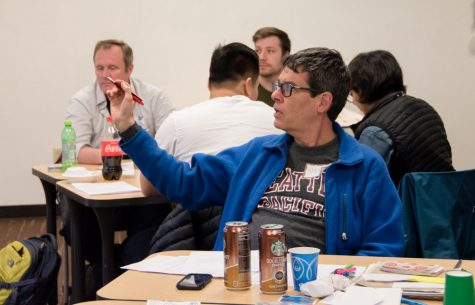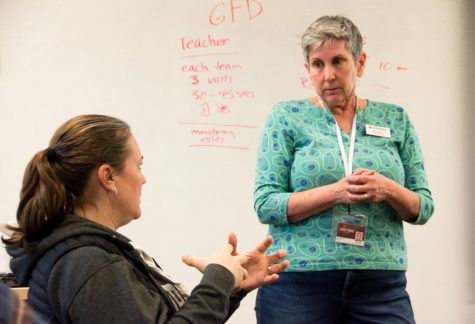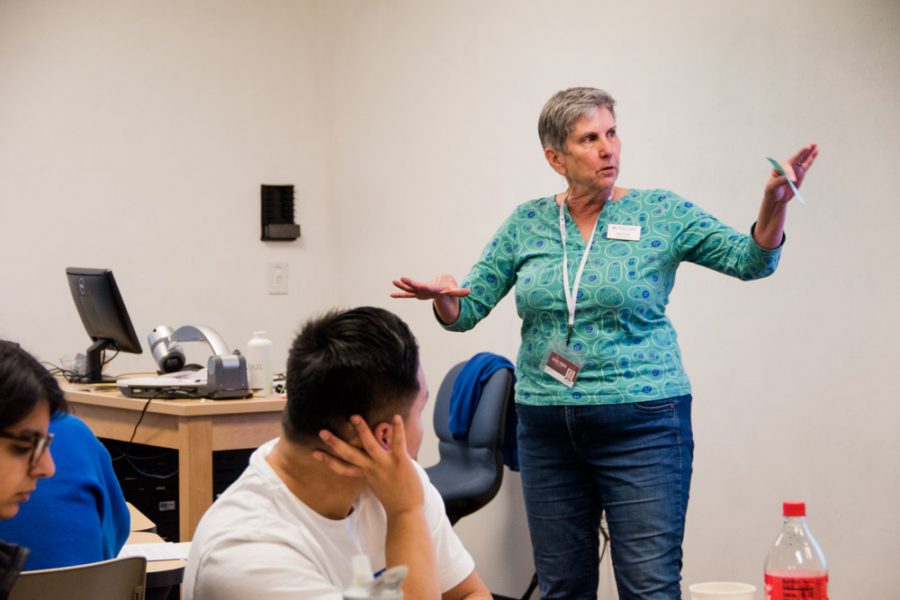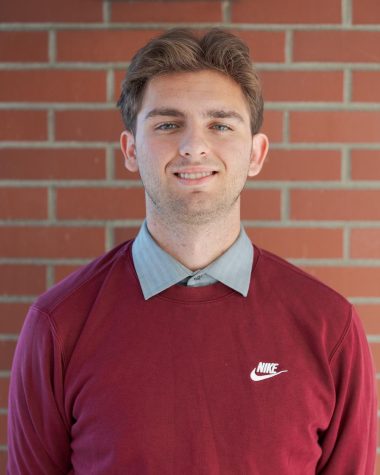Learning to teach
Teachers are made into students as they listen to Mare Sullivan explain different teaching strategies she uses in the classroom.
February 5, 2020
Imagine working long hours, burning through your savings and going to conferences on weekends, all so you can have the chance to shape the minds of future generations. It’s this type of work ethic and dedication to the youth of America that make teaching an integral part of our society. Despite this sentiment, teachers are still wildly considered to be underpaid and overworked.
On Saturday Feb. 2 SPU hosted the Process Oriented Guided Inquiry Learning (POGIL) conference in Cremona 203. SPU is a nationwide leader in these conferences in which a group of unpaid teaching interns gather to learn different strategies that will help them become well rounded educators.

Brendan O’Donnel asks a clarifying question as the group discusses how collaborative work can be most beneficial in a classroom.
This particular conference is part of a series of classes that are required in the state of Washington in order to receive public school accreditation. The focus of the conference is to teach educators how to facilitate learning in a non-lecture based classroom.
“The research literature is very clear that students learn by doing and interacting much better than by hearing,” said Conference supervisor Mare Sullivan.
Sullivan taught for twenty years in the Bellevue Junior High and High school systems. She has also written curriculum for the POGIL system, which is used both in conferences and actual classrooms.
For Sullivan and POGIL, the only way to make teachers good facilitators is to make them go through the same activities that their future students eventually will have to complete. In most of these activities, all students are organized into groups and given roles that switch in each activity.
These roles include manager, technician, encourager, reader, spokesperson, and quality controller. All these roles are supposed to teach a different skill students will need as they move forward in life.
“In this environment, the teacher does not dispense information,” said Sullivan. “The direct teaching happens in the activity itself.”

Mare Sullivan listens to KC Rivero Romero ask a question. Much of the conference focused on having students take responsibility for their own learning by assigning roles in rotating groups.
These aspiring teachers spent seven hours doing a week’s worth of school activities on Saturday. Yet despite the long grind of Saturday, most of the people attending the conference still have a long way to go before getting full time teaching jobs.
“We’ll be doing an intensive class in the summer after this,” said conference attendee K.C. Rivero Moreno.
Along with intensive classes and conferences, all of the attendees teach full time, and all but one person at the conference do not receive any compensation for their efforts.
“Most of us teach full time but we don’t get paid,” Jin Lee. “In other countries, teaching interns receive a stipend or something, but in America this is how we do it I guess.”
Most of the aspiring teachers at the conference have to work second jobs just to make ends meet.
“Yeah, aside from teaching I do research for a professor at SPU,” said Jonathan Corcoran.
Despite the hurdles many of these aspiring teachers have to jump through, they still find meaning in a job that they all aspire to succeed in.
“We are learning strategies on how to structure out classrooms so it is more team oriented,” said Sofiya Jetta. “We are trying to feel what it’s like to be a student.”
Jetta was the only attendee of the conference who has accreditation and is being compensated for her work in the education system. Yet even she decided to give up her Saturday so she can serve her students more effectively in the classroom.
The men and women who decide to go into the American education system are tasked with the duty of inspiring and educating the minds of America’s future.




























































































